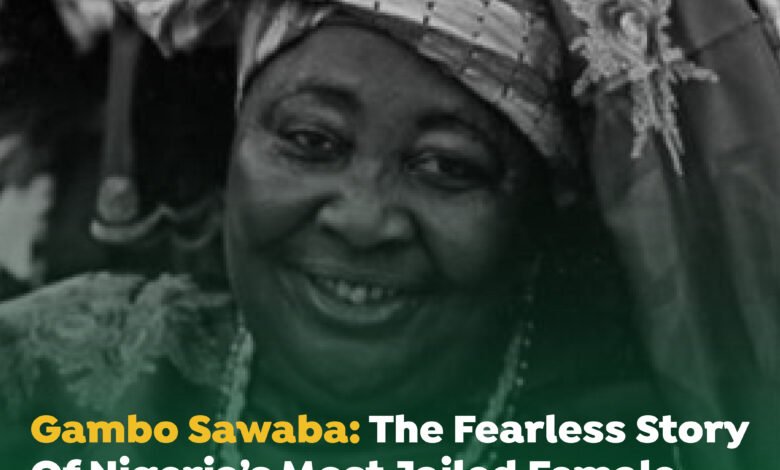
Unlike her mentor the famous and highly respected Funmilayo Ransome-Kuti, not many people know Hajia Gambo Sawaba, the most jailed Nigerian female politician and what she stood for when she was alive.
Her story for inexplicable reasons has not received the attention it deserves.
Sawaba’s sole focus on liberating Northern women from patriarchal oppression, particularly her challenge to the Northern People’s Congress (NPC) that denied females full voting rights, may have contributed to her relative obscurity.
The NPC, backed by the Emirs and British Colonial Authority, deemed female participation in elections as only acceptable ‘in God’s time’.
Undeterred, Sawaba continued her advocacy for women’s enfranchisement, education, and campaign against underage marriage.
Her bravery came at a cost, as she was jailed 16 times in different states, including Kano, Kaduna, and Jos. She even owned a blanket inscribed ‘Prison Yard’ to symbolize her unwavering commitment to her cause.
“I could not stand by to watch a weak friend or relation being molested,” Sawaba once said. “OK, I have bought the fight from you” – she’d tell her weak friends, and begin to wrestle with the oppressor.
Early Life and Education
Born on February 15, 1933, to Ghanaian and Nigerian parents, Sawaba’s life was marked by adversity from a young age. She lost her parents at 12 and was married off to a World War II veteran, Abubakar Garba Bello, at 13. However, when she became pregnant, Bello abandoned her.
Sawaba’s fearless and philanthropic nature was evident from childhood. She was known for standing up for the weak and marginalized, often at great personal cost.
Political Career and Activism
At 17, Sawaba joined the opposition group, Northern Element Progressive Union (NEPU), and became a key figure in the national women’s wing. She fiercely campaigned against women’s subjugation, advocated for Western education, and spoke out against underage marriages and forced labor.
Her political mentor, Mallam Aminu Kano, gave her the name ‘Sawaba’, meaning freedom or redemption, reflecting her dedication to the cause.
Imprisonment, Death, and Legacy
Sawaba spearheaded the movement for the liberation of Northern women, campaigning against child marriage, forced labor, and unfair taxes. She sought jobs for women, education for girls, and their enfranchisement.
The northern authorities saw her as a threat and accused her of inciting women against them.
Sawaba endured brutal treatment in prison, including beatings, torture, and humiliation. “On two occasions, she was stripped naked and given eighty lashes in Zaria Central Prison,” reported Daily Trust.
Al-Jazeera added, “her hairs were shaved without her consent.” Sawaba herself recalled, “I lost my tooth in the struggle.”
Despite this, she remained optimistic, believing in a better society free from tyranny and dictatorial leadership.
Her daughter, Bilikisu, quoted her as saying, “Until her dying day, my mother never stopped hoping for a better society and remained optimistic that Nigerians, especially women, would be free from tyranny and dictatorial leadership in governance.”
Sawaba passed away on October 14, 2001, at 68, leaving behind her only child, Bilikisu.
Her legacy lives on, with a general hospital in Kaduna and a hostel at Bayero University, Kano, named in her honor.
While the name Gambo Sawaba may not be as widely known as others, her contributions to the nation’s history are undeniable.





